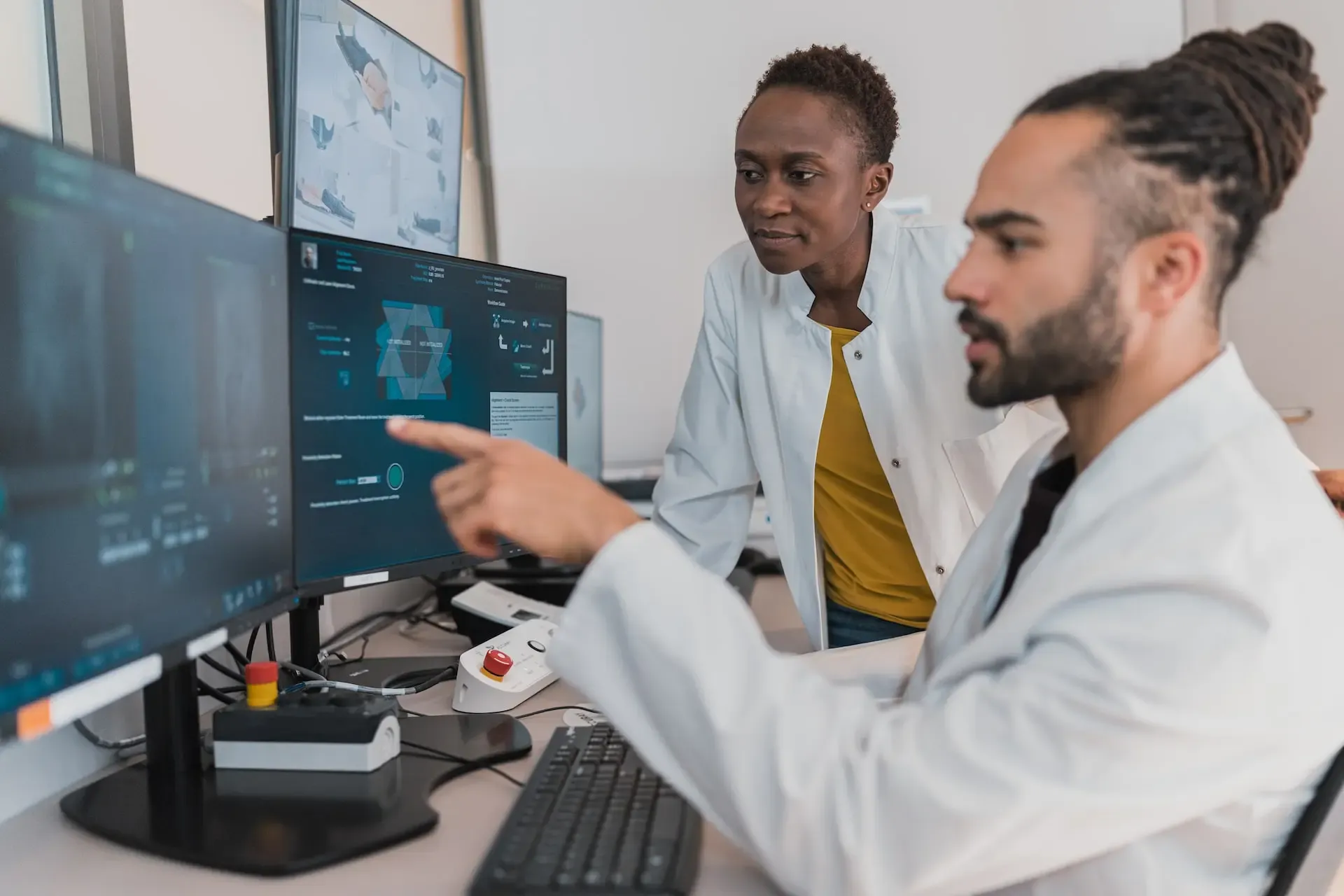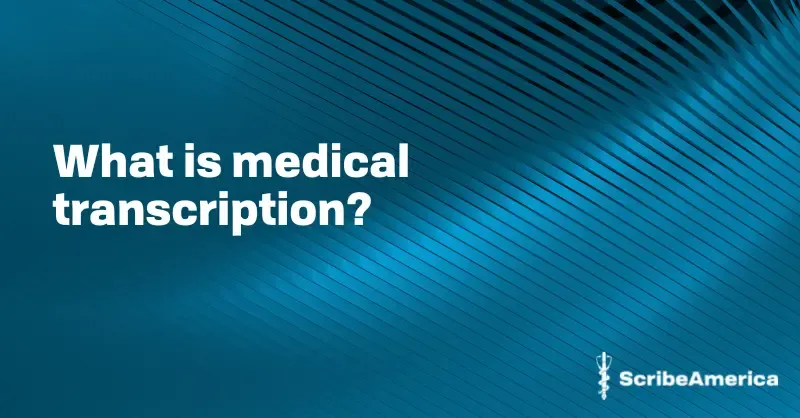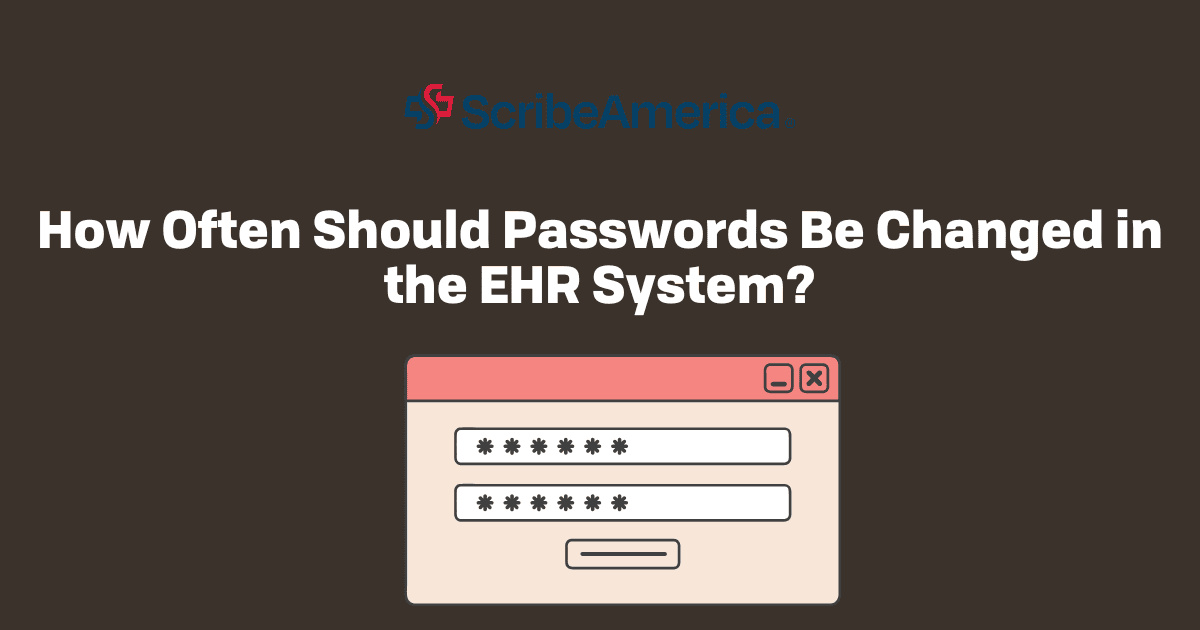Key Points:
- Core Role & Purpose: Medical transcription is the crucial process of converting healthcare providers' spoken dictations into accurate, structured patient documentation. This function allows medical staff to maximize their focus on patient care by delegating critical administrative tasks.
- Essential Skills: The role of medical transciption demands absolute precision and a high degree of responsibility due to handling confidential patient data. Key skills include mastery of medical terminology, high typing speed and accuracy, and meticulous attention to detail.
- Accessibility & Training: While a high school diploma is the minimum requirement, many employers, such as ScribeAmerica, provide extensive on-the-job training to teach specialized knowledge (e.g., ICD-9 codes) and bridge the gap to a professional role.
Working in the healthcare industry is a challenging occupation that involves time and resources. The most important thing about it is to help the patient and be able to focus as much as possible on helping them. For this reason, medical professionals should not waste valuable time creating medical records but instead focus on being there for the patient. Not only medical scribes but also transcriptionists are helpful in this regard. What is medical transcription? How are transcriptions used? You will find the answers to these and other questions in the rest of the article.
What is Medical Transcription?
Medical transcription is the process of converting content recorded by medical professionals (such as doctors, surgeons, and specialists) on patients' medical histories from audio (often dictated recordings) or spoken word into a structured, written format. This process ensures the creation of accurate, legally-sound documentation. People who perform medical transcription practice the profession of a medical transcriptionist
Medical transcriptionists usually work in hospitals, doctor's offices, nursing homes, and other places where doctors and nurses work. This way, medical professionals don't have to do much administrative work and can spend their time on more important aspects of their job.
What is a Medical Transcriptionist and Who Can Do Such Work?
Medical transcriptionists do not need to have higher education like doctors. However, they must be very familiar with medical terminology and have basic healthcare knowledge. The most crucial thing in this job is precision. One must be sure that the medical transcription is fully reliable and without errors. This is because these documents contain confidential data, medical histories, as well as information on drug dosage or further recommendations from doctors. Although medical records are reviewed and signed off on the chart by doctors, the work is still demanding and carries a lot of responsibility.
Professional medical transcriptionists are trained to do their job well - in addition to being able to understand the context and different accents, they are also proficient in medical terminology. That is why only qualified transcriptionists should be conveyed to perform medical transcriptions.

The Essential Skill Set of a Medical Transcriptionist
While a medical transcriptionist does not need to have a clinical background like a doctor, they must possess a unique and demanding skill set. The most crucial thing in this job is precision. This work carries a lot of responsibility because these documents contain confidential patient data, medical histories, drug dosages, and treatment recommendations.
Key skills needed to become a proficient medical transcriptionist include:
- Medical Terminology and Knowledge: A strong knowledge of medical terms, anatomy, physiology, diagnostic tests, abbreviations, and procedures is vital for accurate documentation.
- Typing Speed and Accuracy: This is the core skill, requiring the ability to type efficiently and accurately while actively listening.
- Attention to Detail: Transcriptionists are often responsible for identifying and correcting any errors or inconsistencies in the dictated audio before the doctor signs off on the chart.
- Strong Ethical Foundation: Absolute adherence to confidentiality laws and guidelines, such as HIPAA, is mandatory when handling sensitive patient data.
- English and Writing Proficiency: Excellent grammar, spelling, punctuation, and syntax are required to produce clear and professional medical reports
What Are The Requirements to Get The Job?
Most entry-level medical transcription jobs offered by ScribeAmerica require only a high school diploma.
To start working as a medical transcriptionist, you don't have to be well-versed in fields like anatomy and physiology, disease processes, physical and subject symptoms, clinical medicine, surgery, diagnostic tests, radiology, pathology, pharmacology, and other medical specialties.
If you decide to apply for this position through ScribeAmerica, we'll teach you everything you need to know for the job.
During your training and work, you'll learn about medical transcription guidelines, best practices and ICD-9 codes used for describing diseases, diagnoses and procedures. We'll also teach you how to prepare medical records.
The Role of Technology and the Future of Medical Transcription
The field is continuously evolving with technology. Many transcriptionists now use speech recognition technology or AI transcript generators to create a first draft of a transcript. The human medical transcriptionist then serves as a highly skilled editor and proofreader, refining the draft to ensure 100% accuracy and context.
As the industry shifts, professionals in this field will increasingly need to brush up on technology and AI, using these tools to maximize efficiency while upholding the gold standard of documentation integrity. Future developments like sentiment analysis and advanced voice recognition will only further emphasize the transcriptionist’s role in applying critical human oversight to machine-generated drafts
Medical Transcription - Where to Look for Work?
An aging population means a growing need for all kinds of specialists in the medical care industry. In addition to doctors and nurses, medical scribes or transcriptionists are playing an increasingly important role. As a result, healthcare quality is increasing thanks to their involvement significantly, and so is patient satisfaction.
We encourage you to keep an eye on the job openings available at ScribeAmerica. We regularly publish information about vacancies in the medical industry across the country and those related to telehealth - you can find these types of offers under Medical Scribe and Remote, where we post opportunities for remote work. Don't hesitate to send us your resume - even if we don't have an offer for you now, you can join our talent community and sign up for notifications without committing to a specific position.
What is a Medical Transcription - Final Thoughts
Medical transcription is an essential yet often overlooked component of the healthcare industry. By ensuring accurate medical documentation, transcriptionists help medical professionals provide better patient care while reducing administrative burdens. As the demand for efficient medical record-keeping continues to grow, so do the opportunities in this field.
If you’re looking for a career that blends healthcare with language skills and attention to detail, medical transcription could be the perfect fit. Ready to take the next step? Explore training programs, apply for job openings, and start your journey in the medical transcription industry today!
Are you a woman and looking for your own path in the medical industry? Be sure to check out our article The Best Healthcare Careers and Job Opportunities for Women!





